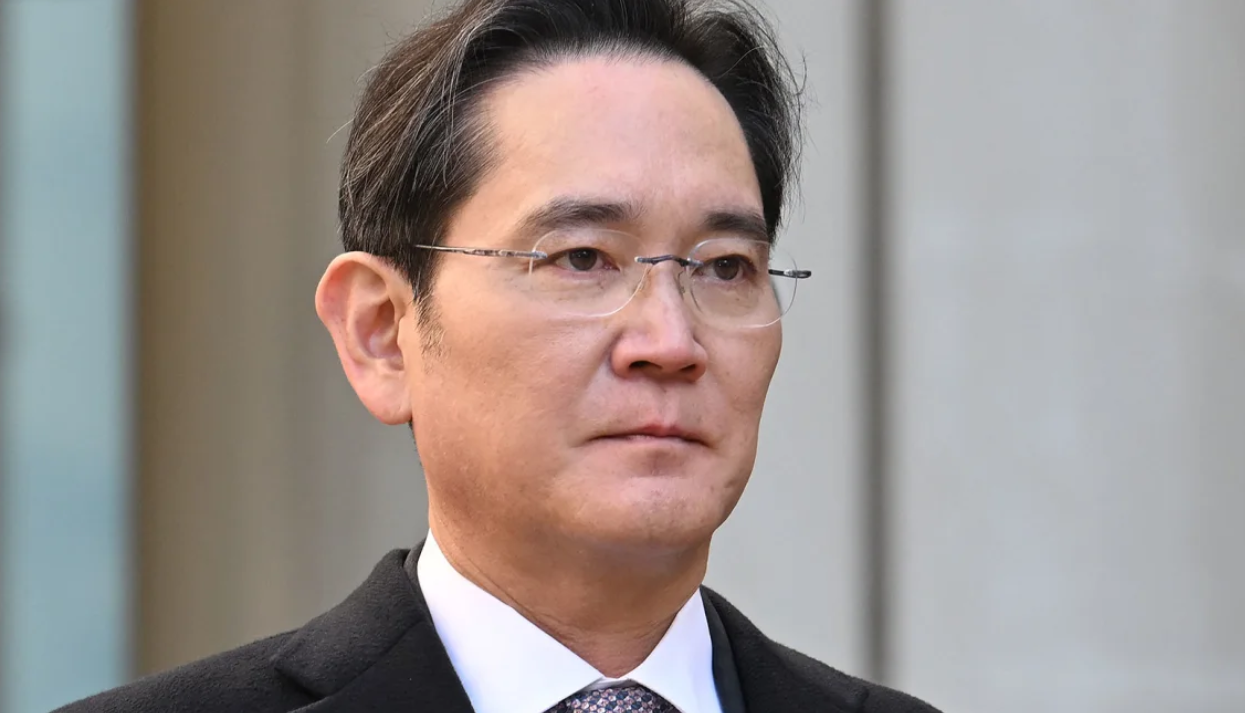Samsung Electronics Chairman Jay Y. Lee was acquitted of charges related to accounting fraud and stock manipulation by a Seoul appeals court on Monday. This decision could eliminate long-standing legal concerns that Lee has faced due to criminal cases.
The Seoul High Court upheld the lower court’s earlier ruling, which dismissed all charges tied to a 2015 merger that prosecutors claimed was aimed at securing Lee’s control over the company.
Lee’s legal battles had been a major distraction, especially as Samsung, the world’s leading memory chip and smartphone maker, struggled with increased competition and weak stock performance.
“It took a long time. We hope with the latest ruling, the defendants would be able to focus on their work,” said Lee’s lawyer, Kim You-jin, following the ruling.
For nearly a decade, Lee has faced multiple legal challenges, including the merger that set the stage for his leadership following his father, Lee Kun-hee’s, heart attack in 2014, which left him in a coma.
Last year, a lower court cleared Lee of all charges related to the $8 billion merger in 2015 between two Samsung affiliates, Samsung C&T and Cheil Industries.
Prosecutors later appealed the decision, seeking a five-year prison sentence, referring to a ruling in August that found Samsung BioLogics, a subsidiary of Cheil Industries, had violated accounting standards by inflating its assets to justify the merger.
However, the judge stated that while Samsung BioLogics’ accounting practices involved “inappropriate acts,” the financial outcomes reflected the company’s actual financial situation and were based on logical and justified processes.
The court rejected prosecutors’ arguments that the 2015 merger resulted in financial losses for Samsung C&T shareholders.
When leaving the court on Monday, Lee declined to answer any questions from the media. He has consistently denied any wrongdoing, stating in court last November, “I never intended to deceive or damage investors for personal gain.”
It is currently unclear whether the prosecution will challenge the decision and take the case to the Supreme Court.
Following the ruling, Samsung’s stock closed down by 2.7%.
Controversial merger
A civic group criticized the court’s ruling, arguing that it showed leniency toward Lee, who was accused of consolidating his control over Samsung at the expense of the country’s pension fund and other investors.
The People’s Solidarity for Participatory Democracy stated that the court ignored previous rulings related to the merger case.
Lee had previously served 18 months in prison on bribery charges before being released in 2021 as part of a scandal that led to widespread protests and ultimately resulted in the impeachment of then-President Park Geun-hye in 2017. Park also served nearly five years in prison.
In 2022, South Korea’s impeached President Yoon Suk Yeol pardoned Lee, with the justice ministry stating that the business leader was needed to help navigate a “national economic crisis.”
The controversial merger has faced criticism from investors like US hedge fund Elliott and raised concerns about the corporate governance of South Korea’s family-owned conglomerates, which are often accused of prioritizing the interests of family members over other shareholders.
In 2023, South Korea’s government was ordered to pay approximately $108.5 million to Elliott, which sued over the role the country’s pension fund played in approving the merger.
Last year, the National Pension Service, which was once the largest shareholder in Samsung C&T, filed a lawsuit against Lee, seeking compensation for the alleged undervaluation of the key unit in the merger.
“This is positive news for Samsung, which has been facing business challenges,” said Park Ju-gun, head of corporate analysis firm Leaders Index. “But the ruling will now put pressure on Lee, who must prove his management skills now that he is free of legal issues.”
Samsung Electronics, the company’s flagship division, recently warned of weak sales in its artificial intelligence (AI) chips for the current quarter.
Samsung has struggled to keep pace with smaller competitor SK Hynix, which has supplied high-bandwidth memory (HBM) chips to Nvidia’s AI graphics processing units, meaning Samsung has missed out on a significant share of the profits from the AI boom.














